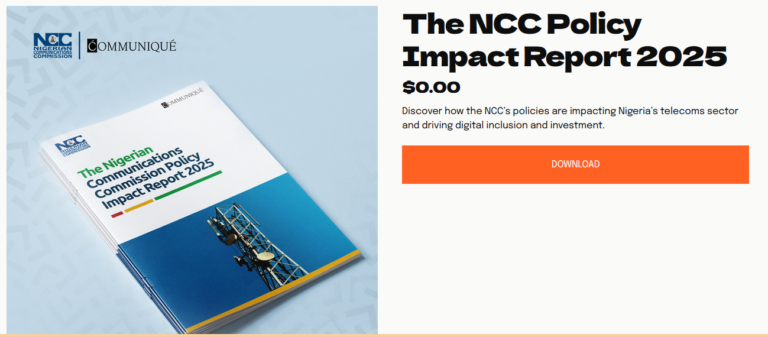A new independent report has concluded that the Nigerian Communications Commission’s (NCC) regulatory actions are significantly advancing Nigeria’s digital economy and helping to achieve the National Broadband Plan’s goal of 70% penetration by 2025.
The impact report by Communiqué, titled “Regulating for the Future: Telecom Policy, Innovation, and Nigeria’s Digital Inclusion Goals,” evaluated the NCC’s reforms over the past two years.
David Adeleke, Founder and CEO of Communiqué, commented on the report, stating that the telecom industry is crucial to Nigeria’s digital future, powering everything from e-commerce to healthcare.
“With the industry already contributing more than 16% to Nigeria’s GDP, the NCC is now aiming for a 22% contribution by 2027. Thus, the NCC’s policies are central to achieving this ambitious goal,” he said.
The report’s key findings highlight several areas of progress:
- Infrastructure Resilience: The NCC’s policies, such as mandatory disaster recovery plans and the designation of telecom systems as Critical National Information Infrastructure, are making networks more resilient against threats.
- Consumer Protection: New guidelines on tariffs and consumer rights are ensuring transparent pricing and protecting users from hidden charges.
- Quality of Service: The NCC has set stricter performance standards for calls, data, and complaint resolution, holding operators more accountable for service quality.
- Market Sustainability: A recent tariff adjustment, the first in over a decade, has restored cost-reflective pricing. This has led to billions in new investment and accelerated the rollout of 4G, 5G, and fiber infrastructure.
- Innovation: Faster device approval processes are curbing the gray market and encouraging local hardware innovation.
While the report is largely positive, it also points out persistent challenges. These include rising cases of vandalism and fiber cuts, weaknesses in enforcement, unequal rural connectivity, and high upgrade costs for smaller operators.
To address these issues, the report recommends stronger inter-agency collaboration, better enforcement, incentives for local manufacturing and focused engagement with rural consumers.


